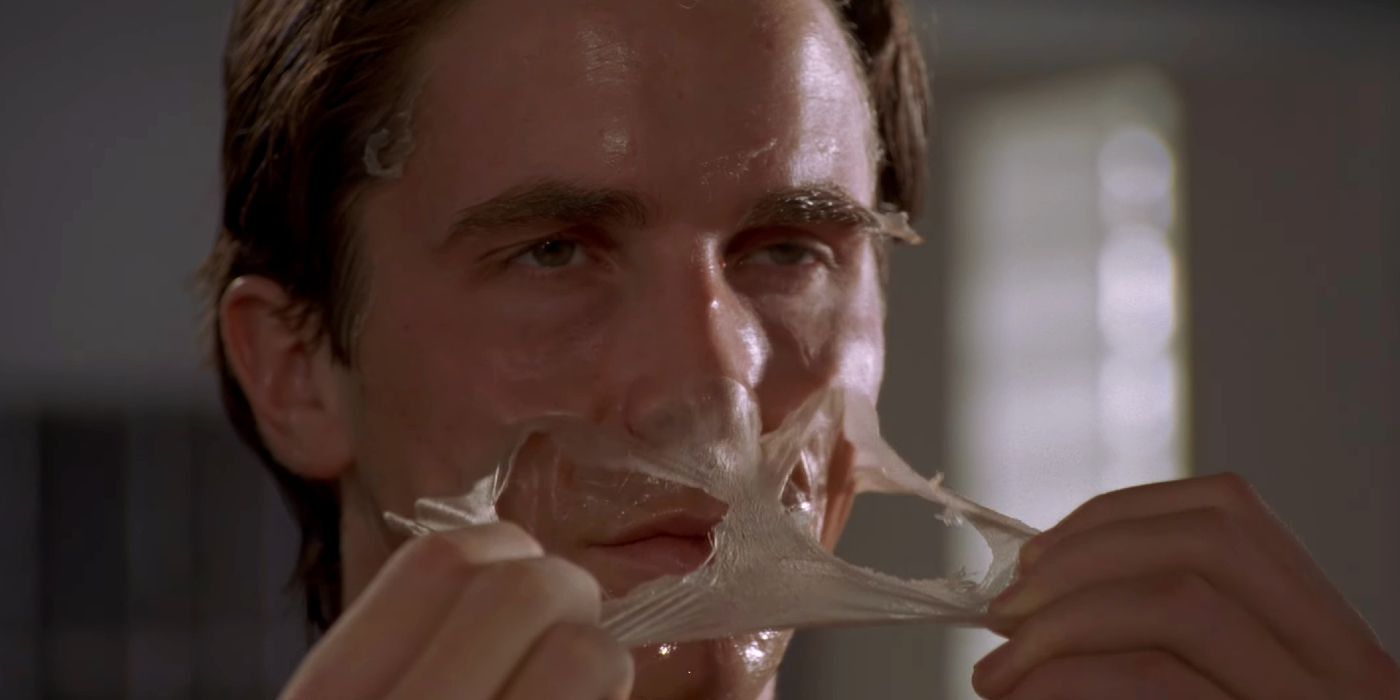Christian Bale explains why he wasn't concerned with being typecast as Batman after Christopher Nolan's Dark Knight trilogy. Now widely acclaimed, Bale began as a child actor in several high-profile films in the late '80s, including Steven Spielberg's Empire of the Sun and Kenneth Branagh's Shakespeare adaptation Henry V. Although his casting as Patrick Bateman in American Psycho in 1999 bolstered his career considerably, he was still somewhat of a risky decision to star as the iconic caped crusader when Nolan cast him in Batman Begins, as his bankability was relatively untested.
SCREENRANT VIDEO OF THE DAY
Before Bale, Batman had been through several big-screen iterations with far more recognizable movie star leads. Michael Keaton was at an early career high point after his comedic turns in Mr. Mom and Beetlejuice when he was tapped for Tim Burton's take on Batman. Val Kilmer was at the peak of his popularity from his heartthrob days in Top Gun and Willow, as well as his dramatic turn as Jim Morrison in the biopic The Doors, when he joined Joel Schumacher's campier take. Like Bale, George Clooney was relatively untested as a film star when he took over from Kilmer for Batman & Robin, mostly riding the immense popularity of his role in ER, but Clooney's post-Batman career skyrocketed him to the A-list. People initially mocked the idea of Nolan's more realistic Batman, but the Dark Knight trilogy was met with overwhelming critical acclaim and is regarded by many fans as their favorite take on the character.
Despite playing the iconic role over the course of three films, Bale was never concerned with being typecast afterwards. In a recent interview with GQ, the actor shares he was warned away from taking on the part, but ultimately it seems more was drawing him to the role than repelling him from it. Read what Bale has to say below:
In many ways, in the same way that people were telling me how you can't go play Patrick Bateman, it's career suicide, and I was like, "Bring it on, I definitely want to do that." Other people also said, "Hey, you know if you play Batman, that's it. You're never gonna play anything else again, you will always be Batman." And I went, "Bring it on. Let's see if that happens." Because I just always felt like look, if I don't have the skill to be able to rise above that, then I don't deserve to, either.
Christian Bale's Career Goes Far Beyond Playing Batman

Bale has never been an actor who's afraid of challenges, and he's tackled many difficult roles over the course of his career. There's the oft-publicized facets of his intense method acting that tabloids love to focus on, such as Bale's extreme weight gain and loss for roles. At his lowest point, he weighed 120 lbs for his haunted factory-worker in 2004's The Machinist, and at his highest, over 225 lbs for roles in 2013's American Hustle and 2018's Vice. Beyond that superficial aspect, he inhabits his roles with an intense emotional commitment, lending the same gravity to playing a soldier interred in a Vietnamese POW camp in Rescue Dawn that he does to playing a villain in a highly stylized Marvel movie like Thor: Love and Thunder. In between The Dark Knight and The Dark Knight Rises, Bale won a Best Supporting Actor Academy Award for his portrayal of the squirrely, crack-addicted former boxer Dicky Eklund in The Fighter.
Evidenced by some of his more idiosyncratic work with director David O. Russell and his sharply satirical turn in American Psycho, the actor has a strong sense of humor and doesn't excel exclusively at drama. Bale's performance as Batman will be rightly remembered, both for his coldly hollowed-out take on Bruce Wayne, and his rage-fueled vigilante alter-ego with an imitable voice. Bale has more than proven that the hero will be merely one of many roles he's remembered for in future retrospectives.
